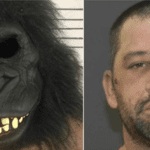 History
History  History
History  History
History 10 “Modern” Problems with Surprising Historical Analogs
 Health
Health 10 Everyday Activities That Secretly Alter Consciousness
 History
History Top 10 Historical Disasters Caused by Someone Calling in Sick
 Animals
Animals 10 New Shark Secrets That Recently Dropped
 Movies and TV
Movies and TV 10 Forgotten Realities of Early Live Television Broadcasts
 Technology
Technology 10 Stopgap Technologies That Became Industry Standards
 Weird Stuff
Weird Stuff 10 Wild Facts About Taxidermy That You Probably Didn’t Know
 Travel
Travel 10 Beautiful Travel Destinations (That Will Kill You)
 Miscellaneous
Miscellaneous 10 Modern Marriage Rituals Born from Corporate Branding
 History
History 10 Extreme Laws That Tried to Engineer Society
 History
History 10 “Modern” Problems with Surprising Historical Analogs
 Health
Health 10 Everyday Activities That Secretly Alter Consciousness
Who's Behind Listverse?

Jamie Frater
Head Editor
Jamie founded Listverse due to an insatiable desire to share fascinating, obscure, and bizarre facts. He has been a guest speaker on numerous national radio and television stations and is a five time published author.
More About Us History
History Top 10 Historical Disasters Caused by Someone Calling in Sick
 Animals
Animals 10 New Shark Secrets That Recently Dropped
 Movies and TV
Movies and TV 10 Forgotten Realities of Early Live Television Broadcasts
 Technology
Technology 10 Stopgap Technologies That Became Industry Standards
 Weird Stuff
Weird Stuff 10 Wild Facts About Taxidermy That You Probably Didn’t Know
 Travel
Travel 10 Beautiful Travel Destinations (That Will Kill You)
 Miscellaneous
Miscellaneous 10 Modern Marriage Rituals Born from Corporate Branding
10 Millionaires Who Committed Murder
Not everyone is preoccupied with becoming rich, but few would turn it down. It’s hard to imagine how not having to worry about money could possibly be bad (to quote Forrest Gump: “One less thing”), and most of us can’t help but be a little jealous of those whose lifestyles we can only daydream about.
Most people also find it hard to conceive of how anyone could commit cold-blooded murder. And when carried out by the very rich, who perhaps weren’t quite rich enough to get away with it, maybe there’s a touch of schadenfreude in seeing those who once had it all end up behind prison bars.
10Haissam Safetli

In September 2009, Sydney businessman Michael McGurk was gunned down outside his home, while his nine-year-old son watched. Two men were involved in the crime, and prosecutors would be unable to prove which one fired the shots that killed McGurk. One was just a teenager, Chistopher Estephan; the other, 43-year-old Hassaim Safetli, had been a millionaire by the time he was Christopher’s age, and by his 30s was worth over $50 million .
The court alleged that the two acted on the direction of property developer Ron Medich, who is currently on trial for McGurk’s death. They further found that Safetli, who was believed to have lost most of his money, had been paid $300,000 for the hit and was objectively culpable regardless of whether he fired any shots. Despite this, Safetli received a heavily reduced sentence in exchange for pleading guilty and cooperating with authorities to nail Medich and Estephan. So, after being found culpable in the murder of an unarmed man in front of his child, Safetli was sentenced to a minimum of only 6.5 years—due to time served, he could be free as early as 2017.
9John Dupont

John DuPont was the enormously wealthy heir to the DuPont fortune—the company that bears his name is the world’s third-largest chemical conglomerate, and the inventors of nylon. In 1996, DuPont shot and killed Olympic wrestling gold medalist David Schultz. His defense claimed the millionaire believed Schultz was part of a giant, international conspiracy to assassinate him.
DuPont was the main sponsor of Team Foxcatcher, an elite wrestling squad of which Schultz was a member. Schultz and his family (including his wife Nancy, who witnessed the slaying) lived at the DuPont estate during training. During the period leading up to the shooting there had been reports that John was claiming to be the Dalai Lama or a CIA agent, but unfortunately nobody chose to question his increasing detachment from reality, or his growing fondness for guns. After DuPont shot Schultz three times with a .44, a jury found him guilty but mentally ill, one of eight specific verdicts they had been instructed to consider. DuPont was sentenced to 13–30 years in prison in 1997 and was denied parole twice, before dying in 2010.
8John Brooks
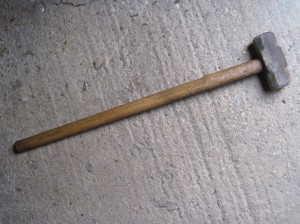
In 2003, a moving truck full of the belongings of New Hampshire millionaire John Brooks went missing. Brooks apparently became convinced that one of his movers, Jack Reid, was somehow responsible. Instead of going to the police or confronting Reid, Brooks took the much more reasonable action of paying his own son and several other men to ambush Reid in a barn and beat him to death with a sledgehammer.
Two of the men involved gave graphic testimony against Brooks, saying they had been paid $10,000 for their part in the crime, and describing how they watched Brooks hit Reid several times with the hammer, attempting to “stop the heart, stop the bleeding.” All of the men involved were given prison sentences of varying lengths. John himself, spared the death penalty, was given two consecutive life sentences. His 2012 appeal was denied.
7Bob Ward
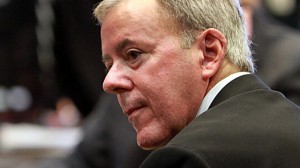
Florida real estate developer James “Bob” Ward was already in a whole lot of trouble before he fatally shot his wife Diane in 2009. He was being sued by his insurance company over allegations that he had misappropriated over $20 million for personal purchases, including a $750,000 mansion and a $140,000 car. Bob Ward subsequently claimed that the stress had made Diane suicidal, and that he had accidentally shot her while attempting to prevent her from taking her own life. We’ll leave it for you to decide if this is consistent with his call to the 911 operator immediately after the shooting: “I just shot my wife. She’s dead. She’s done. I’m sorry.”
Ward was sentenced to 30 years in late 2011, despite pleas for leniency from his two adult daughters. Incredibly, his lawyers argued that Ward was the victim of “class prejudice“—specifically that statements made by the prosecution about the Wards’ lavish lifestyle biased the jury against him, amounting to “prosecutorial misconduct.” The appeal was roundly denied, and Ward remains in prison.
6Freddie Young

Strangely, here’s yet another case involving an Australian real estate developer—this time the victim instead of the murderer. Forty-five-year-old Greg McNichol, who had moved to the United States in 1998, made millions buying up investment properties in poor areas like Detroit, where he was living when he was killed. His murderer was Freddie Young, the father of one of his tenants. Freddie was also one of 13 people who had gone in on a $46 million winning lottery ticket in 2011.
In the course of a dispute over rent, Young felt that his daughter had been “disrespected” by the landlord (who, at the time of the shooting, was heartlessly organizing a Mother’s Day barbecue for his tenants). Young drove over to the apartment building and shot McNichol once with a .44. He bled to death while on the phone with a 911 operator.
Young’s attorneys inexplicably claimed self-defense in his shooting of an unarmed man, while Young himself claims he “didn’t know he was holding the gun” until it discharged. He was sentenced to 25–30 years for second-degree murder and his $1.5 million share of the lottery winnings was frozen by the judge.
5John Gordon Abbott

Many things are still unknown about John Gordon Abbott and the details of the crime he committed in 1980. Perhaps this has something to do with the fact that Abbott, along with the other two men (Phillip Thompson and Michael Hennessey) who participated in the murder of Valerie McDonald, allegedly spent a good deal of time working for the CIA.
The three men were managers of Valerie’s apartment building, and she was known to be friendly with Hennessey. It was he who lured her to a warehouse with a story about being an extra in a movie, which (being a waitress in California) was all she needed to hear. Investigators believe Valerie was held for at least 10 days, chained to a mattress and pumped full of drugs. Her body wasn’t found until 1990 (or identified until 2000). As such, investigators were unable to bring a murder charge against any of the men. Abbott, who fled to Canada after the crime, hit a snag in his escape when he shot at approaching Mounties. After being jailed for seven years for the attempted murder of an officer, Abbott was released. He immediately vanished.
Although he was known to frequently have large amounts of cocaine lying around, nobody is sure where all of Abott’s money came from—but he had lots of it. After turning up in New Zealand in the 1990s, he purchased millions of dollars’ worth of property, which he paid for in cash. For 20 years, he split his time between a teaching post in Japan (where his wife lived) and his home in New Zealand. Abbott was in Australia for business when New Zealand authorities discovered who he was and put out a border alert on him. He subsequently fled to the UK, and he is now thought to be back in Japan, still at large.
4Allen Blackthorne

In 1997, 35-year-old wife and mother Sheila Bellush was brutally shot and stabbed in her kitchen as her quadruplets played nearby. Her body was discovered by her 13-year-old daughter from her previous marriage to Allen Blackthorne, a millionaire developer of medical supplies and the man who had had arranged her murder.
It had been an extremely ugly, five-year divorce, in the middle of which Sheila had met Jamie Bellush, the man she would later marry. When the newlyweds moved to Florida from San Antonio, they took the two kids Sheila had had with Blackthorne, who agreed in court documents to have nothing to do with the children.
The move did not sit well with Blackthorne, who used a private detective to track down his ex-wife and paid several men $54,000 to kill her—with a bonus if he reclaimed custody of his children. One of these men, Jose Luis Del Toro Jr., confessed to being the one who murdered Mrs. Bellush, delivering the damning testimony required to send Allen Blackthorne to prison for the rest of his life.
3Calvin Harris

Calvin Harris was from a wealthy New York family. His father, Dwight, owned a chain of successful car dealerships, and Calvin lived a life most could only dream of. He and his wife Michele lived on a 250-acre estate with a private lake, were married for 10 years, and had six young children. However they were both prone to affairs, and a divorce was looming when Michele suddenly went missing. One curious aspect of the case was the date she vanished—September 11, 2001.
Prosecutors argued that Harris killed his wife to avoid a divorce settlement (she was to meet with her attorney to discuss finances on the night she vanished) and relied on six drops of blood found in the Harris home to secure a conviction. After a witness came forward claiming to have seen Michele arguing with another man on the night of her disappearance, Harris was awarded a retrial, which resulted in his second conviction. He was sentenced to 25 years to life in prison, which it appears he will serve—his second conviction was upheld by an appeals court in 2011. It has been widely speculated that Calvin intended to capitalize on the severe depletion of NYPD resources that night to get away with the crime.
2Adrian Prout
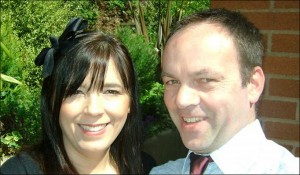
Englishman Adrian Prout similarly decided he had had enough of his wife when she began making noises about wanting £800,000 in their impending divorce. Prout insisted his wife had run off in 2007 in order to “wind him up.” And indeed, her body was nowhere to be found on his 276-acre Gloucestershire compound, where he ran pipe laying and commercial pheasant hunting businesses that had made him very wealthy.
Despite this absence of a body, Adrian was tried and received a life sentence for her murder. He continued to deny everything until his new girlfriend, Debbie Garlick (believing him to be innocent), arranged for Prout to take a lie detector test in order to clear his name—a test which Prout promptly failed. This apparently led him to confess to Garlick, after which he finally took police to where he had buried the remains of his wife almost four years earlier. The remains were positively identified in November 2011.
1Harold Landry
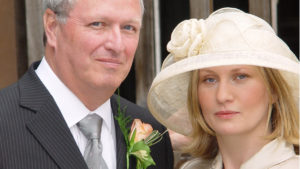
To thematically unite our final three entries we have Harold Landry, an American millionaire who was convicted of killing his British wife. This time, however, there was no hiding the body or denying what had happened. Landry claimed that he was guilty not of murder, but manslaughter by provocation after discovering his wife’s affair.
Unbeknownst to the jury, Landry had a bit of a history with poorly handling romantic relationships. In 1994, he had shot and nearly killed the husband of a woman with whom he had been having an affair with. When the husband, Chris Price, confronted Landry about the affair, he produced a gun from his car and shot Price in the neck, severing major arteries, before leaving him to die. Price survived only because of his lucky proximity to a nearby hospital. Landry was convicted of aggravated battery and given a suspended sentence.
“There is a trait within you,” the judge at his murder trial told Landry, “that, if provoked and challenged, can lead to serious violence.” The second person to encounter that trait was not fortunate enough to survive, and the jury wasn’t satisfied with manslaughter. They convicted Harold Landry of second-degree murder and handed down a sentence of life in prison.




